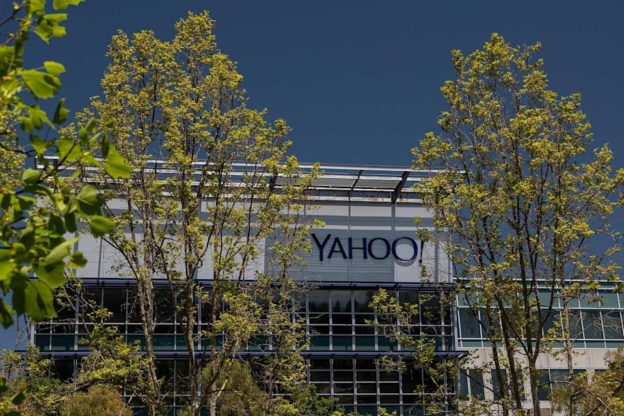Less than four years after [hotlink]Verizon[/hotlink] completed a $9 billion digital media spending spree to buy faded Internet superstars Yahoo and AOL, the telecommunications giant is unwinding the deals. Verizon said on Monday that it would sell a 90% stake in the unit now called Verizon Media to private equity firm [hotlink]Apollo Global Management[/hotlink] for $5 billion.
The newly independent company will be renamed [hotlink]Yahoo[/hotlink].
The deal ends a diversification strategy that prior Verizon CEO Lowell McAdam built in the shadow of rival AT&T’s foray into the news and entertainment industry—one that cost about 20 times as much. But McAdam retired as CEO in 2018 and was replaced by former [hotlink]Ericsson[/hotlink] CEO Hans Vestberg. Vestberg gave the media business a few years to prove itself, but has lately been selling parts of the unit and eventually decided to move on completely, likely for several reasons:
Verizon could use the cash
Verizon, AT&T, and [hotlink]T-Mobile[/hotlink] are engaged in a fierce and expensive battle to woo wireless customers to superfast 5G technology. Adding to the pressure, new entrant [hotlink]Dish Network[/hotlink] is building a brand-new 5G network of its own.
Verizon had already spent tens of billions of dollars on its 5G upgrade, but found it lagged in available airwaves it controlled compared with rival [hotlink]T-Mobile[/hotlink]. So Vestberg had to spend big at the most recent government auction of airwave licenses. Verizon topped all bidders, agreeing to pay $45 billion for new licenses plus an estimated $5 billion to $10 billion more in required payments to help the satellite communications companies currently using those bands move to other spectra. That is nearly double what analysts had expected the airwaves would cost and has left Verizon deeply in debt. Then Vestberg announced in March that the company would spend an additional $10 billion over the next three years beyond its already planned capital expenditures to expand 5G to its new airwave spectrum.
“Strategically this is the right thing for Verizon to do,” New Street Research analyst Jonathan Chaplin wrote in a report on Monday. “The media business has no material value to its other businesses. It allows Verizon management to focus attention and resources on wireless.”
Verizon’s ad business was too small
When McAdam completed the Yahoo deal and formed the new media unit, initially called Oath, he outlined a lofty goal of creating one of the largest digital ad businesses after [hotlink]Google[/hotlink] and [hotlink]Facebook[/hotlink]. “The big advertisers have come to us saying that they have more ads to place than they have good places to put them,” McAdam told analysts in 2016 after announcing the Yahoo deal. “We will be one of the few that can deliver advertising and content across the home, across the mobile device, and across the Internet.” The CEO predicted that industrywide digital ad sales could total $180 billion by 2020 and that Verizon could be “a significant player in this space.”
McAdam’s prediction about the size of the overall market was close at least. Research firm eMarketer pegged the U.S. digital ad market at around $150 billion last year. But Verizon’s share was only 2.1%, or $3.2 billion, not exactly a significant player. Verizon’s total digital ad revenue and market share dropped steadily from 2017 every year through 2020, eMarketer reported. The problem was that advertisers weren’t as interested in Verizon’s various properties as McAdam had thought, and there were plenty of ways to reach mobile consumers via other networks.
Looking forward, eMarketer sees Google and Facebook in the lead, with projected market shares of 29% and 25%, respectively, for 2021. Next is [hotlink]Amazon[/hotlink] at 11%, [hotlink]Microsoft[/hotlink] and Google’s YouTube at about 3% each, followed by Verizon Media at under 2%, with LinkedIn, Twitter, Snapchat, and Roku each grabbing about 1%.
Privacy protection may have been an issue
One tactic that may have paid off for Verizon was combining the carrier’s rich trove of data about its wireless subscribers with Oath’s ad-targeting system. “Data is the oil of the mobile economy,” initial Oath boss Tim Armstrong used to say.
But Verizon executives on the wireless side never agreed to give Oath the kind of unimpeded access to subscriber data that Armstrong sought. Instead, they offered wireless subscribers the opportunity to opt in to data sharing, an option which fewer than 10% accepted, according to a Wall Street Journal report.
Armstrong left at the end of 2018 and started a company to invest in direct-to-consumer retailers.
Maybe now Yahoo could make a push into Internet nostalgia merch and get backing from Armstrong?
https://money.yahoo.com/3-reasons-verizon-needed-dump-172638562.html





